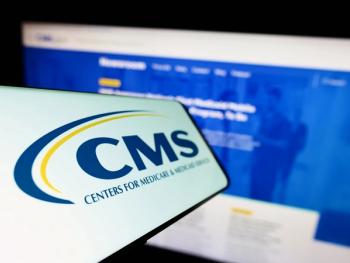
Lack of Social Support Top Barrier to Cell and Gene Therapy Access, Survey Finds
Healthcare providers are exploring ways to reduce patient travel through a growing trend of expanding sites of administration beyond academic medical centers into community and outpatient settings closer to patients' homes.
Many patients who are eligible to receive a cell or gene therapy don’t ultimately get the treatment, but the biggest reason isn’t due to cost or insurance denials. Instead, they cite the lack of social support as the main factor, according to a new report.
According to Cardinal Health’s 2025 Advanced Therapies
The report surveyed 104 healthcare providers and pharmacists, including referring physicians, administering physicians and CGT pharmacists across various medical specialties. Its findings underscore the extensive support network needed for patients to successfully complete CGT treatment.
“While these new treatment options offer life-changing and life-saving benefits to patients, they also pose challenges to the healthcare system, including high costs, a complex patient journey, and payer and provider barriers,” stated Fran Gregory, Pharm.D., vice president of Emerging Therapies at Cardinal Health, in the report.
Cell and gene therapies often require patients to travel to specialized treatment centers, typically located at academic medical centers or large integrated delivery networks in major metropolitan areas. Once there, patients undergo complex procedures, including collection of their cells through a process called apheresis. These are sent to the manufacturer for drug processing, and then within a few weeks, the finished therapy is sent back to the hospital for administration.
Unlike other therapies, cell and gene therapies often require patients to remain near the administering hospital for a month with a caregiver as a precaution for treating potentially serious side effects that can occur. Throughout this process, patients need dedicated caregivers to coordinate travel, manage lodging near treatment facilities and provide support during recovery.
“The requirement of multiple trips covering a few months is growing into the standard across several therapies,” said Derek Todd, director of Sonexus Access and Patient Support at Cardinal Health, in the report. “
“A lot of patients in the community setting have more complex cases and are either unable or unwilling to travel to a large center, even for a second opinion or for a CAR T-cell therapy evaluation,” said Ajeet Gajra, M.D., chief scientific officer, Hematology Oncology Associates of Central New York, in the report.
To address these challenges, healthcare providers are exploring ways to reduce patient travel through a growing trend of expanding sites of administration beyond academic medical centers into community and outpatient settings closer to patients' homes. Remote monitoring through digital tools and wearable devices is also being tested in different settings.
Survey respondents indicated they would be focused on offering new or improved programs moving forward, including strategic initiatives between payers and manufacturers (69%), extending CGT administration facilities beyond medical center hubs (53%) and expanding financial assistance programs (48%).
With more than 20 cell and gene therapies approved by the FDA in the past few years for a range of conditions and hundreds more potentially coming to the market in the next decade, addressing these barriers may determine how successful, or not, these medicines are commercially.
“CGT commercialization and access barriers drive the spread between market demand and adoption,” said Jen Klarer, managing partner & head of Cell and Gene Therapy at The Dedham Group, in the report. “Market success requires in-depth diagnosis of access barriers to inform strategic commercial model design and to minimize these barriers.”
Newsletter
Get the latest industry news, event updates, and more from Managed healthcare Executive.























